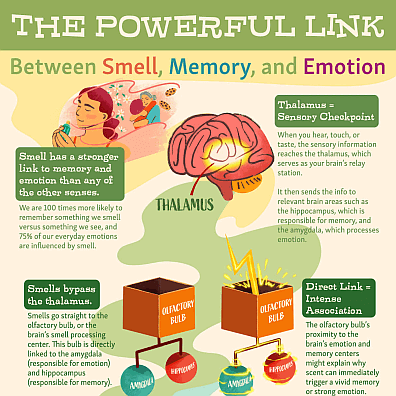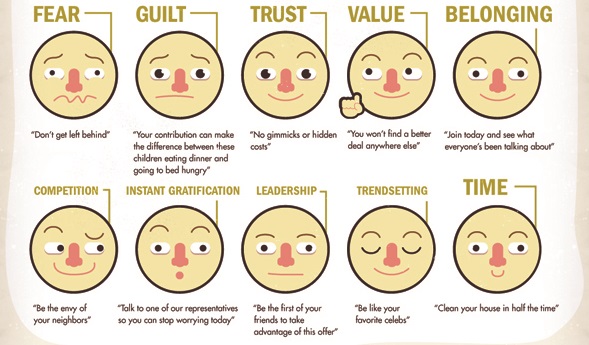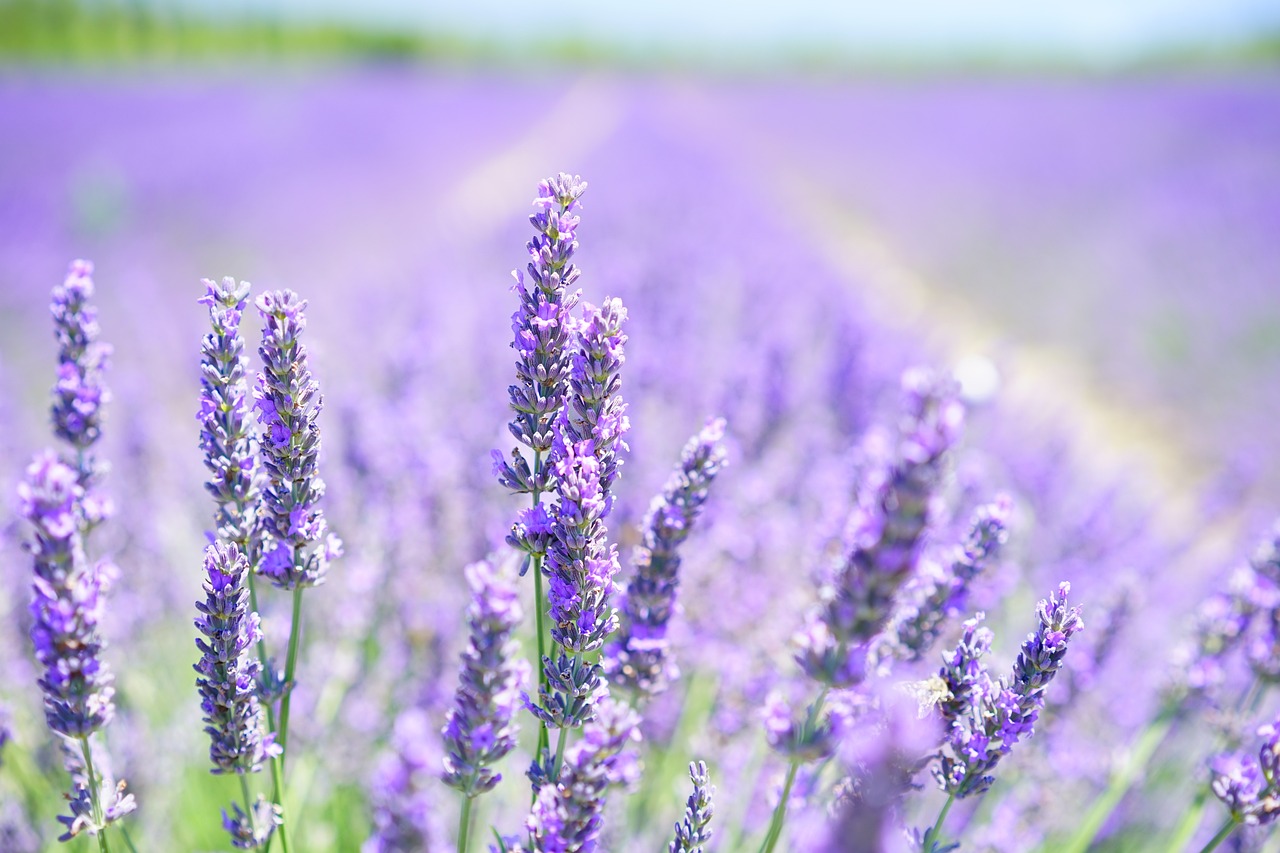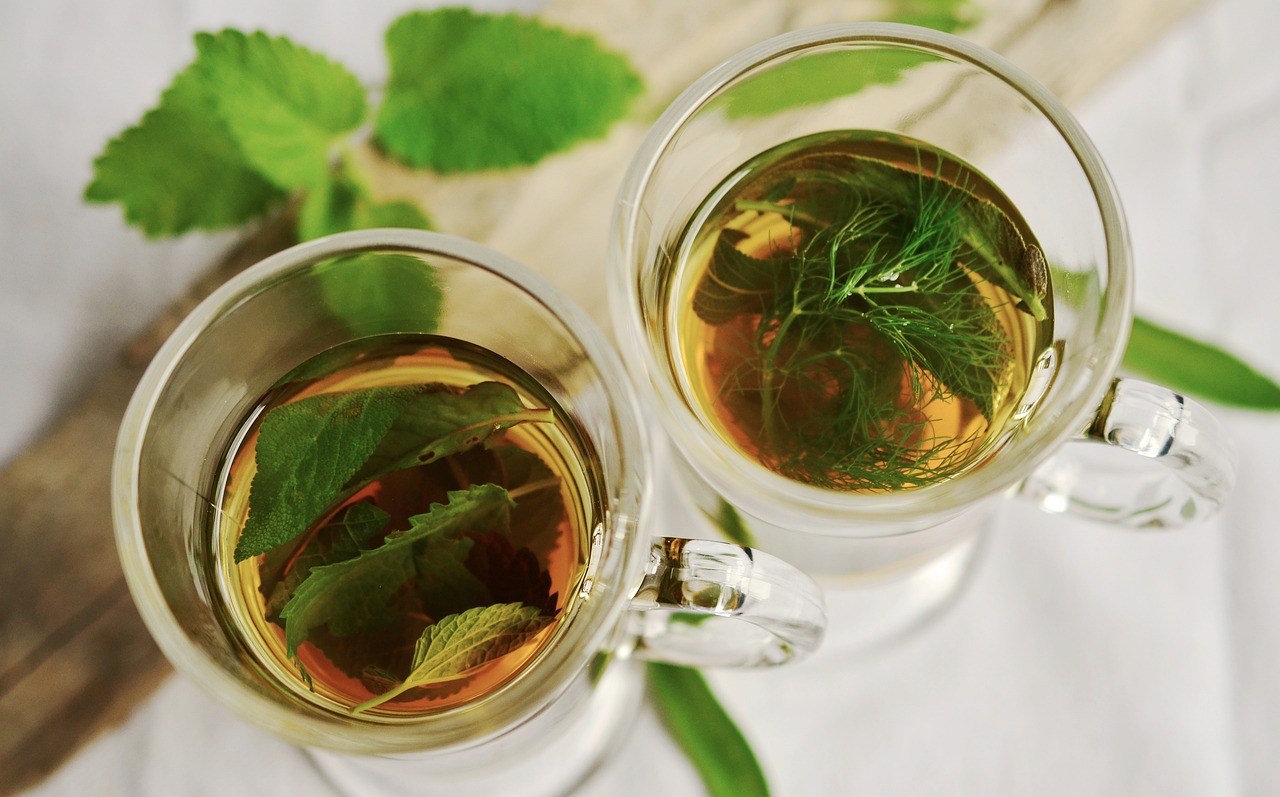Table of Contents
Have you ever noticed how a particular scent can instantly transport you to a specific memory or evoke a strong emotion? From the soothing aroma of lavender to the invigorating scent of citrus, fragrances have a profound impact on our psychological and emotional well-being. In this article, we delve into the fascinating world of fragrance psychology, exploring how scents can influence our mood, behavior and overall mental state.
Have you ever paused to ponder the remarkable power of scent? It’s a sensory marvel that possesses the extraordinary ability to bridge the realms of the past and the present, emotions and memories. From the tranquil embrace of lavender to the zesty burst of citrus, fragrances wield an undeniable influence over our psychological and emotional well-being. In this captivating exploration, we dive deep into the world of fragrance psychology, unlocking the secrets of how scents have the capacity to shape our mood, behavior and our very state of mind.
At the heart of fragrance psychology lies the profound connection between our olfactory system and the brain. Unlike our other senses, which pass through intermediary processing centers before reaching the brain, scents have a direct route to the limbic system—the emotional control center. This direct connection explains why a whiff of a particular scent can trigger vivid memories or unleash a surge of emotions within mere seconds.
The effects of fragrances on mood are nothing short of enchanting. The soothing, floral notes of lavender, for instance, are renowned for their ability to induce calm and relaxation. Lavender’s embrace can melt away stress, easing the mind into a tranquil state of serenity. On the other end of the spectrum, the zesty and invigorating scent of citrus can jolt us awake, infusing our spirit with energy and vitality. These fragrances are potent tools that we can wield to navigate the ever-changing landscape of our emotions.
But fragrance psychology extends beyond mere mood modulation. Scents have been harnessed for centuries to influence behavior and enhance cognitive function. From the focus-enhancing aroma of rosemary to the appetite-suppressing properties of mint, fragrances have the power to shape our choices and actions in subtle yet meaningful ways.
Moreover, the therapeutic potential of fragrance psychology is a burgeoning field, with aromatherapy at its forefront. Essential oils extracted from plants have been used for centuries to address a myriad of emotional and psychological concerns. The careful selection and application of these oils can provide relief from anxiety, depression and even insomnia, offering a holistic approach to mental well-being.
As we journey through the captivating world of fragrance psychology, we’ll uncover the science behind these olfactory wonders. We’ll discover how fragrances can be harnessed as tools for enhancing concentration, alleviating stress and promoting a sense of well-being. The art of scent selection becomes a profound and deeply personal journey, where we learn to harness the power of fragrances to navigate the complexities of our inner world. In this aromatic adventure, we’ll unlock the secrets of scent, revealing how it can be harnessed as a powerful ally on our quest for emotional balance and mental harmony.
You can also read more about this here: Influence of Fragrances on Human Psychophysiological Activity …
The Power of Olfaction
Olfaction, our sense of smell, is one of our most primal and powerful senses. It is intimately linked to the brain’s limbic system, which plays a key role in regulating emotions and memory. When we inhale a scent, odor molecules stimulate receptor cells in the nose, sending signals to the brain. This direct connection between scent and emotion explains why fragrances can have such a profound impact on our psyche.
Olfaction, the often-underestimated sense of smell, is a remarkable gateway to our inner world. Beyond its role in detecting and identifying odors, it is intrinsically connected to the very core of our being—the brain’s limbic system. This intricate relationship between scent and emotion has profound implications for our understanding of the human experience.
When we encounter a fragrance, whether it’s the subtle sweetness of a blooming flower or the warm embrace of a beloved perfume, a complex journey unfolds. Odor molecules from the scent enter our nasal passages, where they come into contact with specialized receptor cells. These receptors detect the specific chemical makeup of the scent and transmit this information to the olfactory bulb, which is part of the limbic system.
The limbic system, often referred to as the brain’s emotional center, is responsible for processing emotions, memories and regulating various physiological responses. It’s a realm where our deepest feelings and past experiences reside. When the olfactory signals reach the limbic system, they trigger a cascade of reactions that can be intensely emotional.
This direct connection between scent and emotion is the reason fragrances have such a potent influence on our psyche. A particular scent has the power to conjure vivid memories, whether it’s the scent of a childhood home, a favorite holiday destination or a loved one’s embrace. It can evoke emotions we thought were long buried, transporting us through time and space.
Fragrances are not merely pleasant aromas; they are emotional triggers that can elicit joy, nostalgia, comfort or even longing. They can alleviate stress, reduce anxiety and provide a sense of security. It’s no wonder that certain scents are associated with relaxation and well-being, as they have the capacity to soothe the restless mind and calm the anxious heart.
Furthermore, this profound connection between scent and emotion has practical applications in various fields, from aromatherapy in healthcare to scent marketing in business. Fragrances are harnessed to enhance moods, improve focus and create positive associations.
In essence, our sense of smell is a powerful channel through which we navigate the world of emotions and memories. It adds depth, texture and color to our experiences, enriching our lives in ways that go beyond words. The next time you encounter a fragrance that stirs your soul, remember that it’s not just a scent; it’s a bridge to your innermost self, a trigger of memories and a conductor of emotions. It’s a testament to the profound and mysterious connection between scent and the human psyche.
To expand your knowledge on this subject, make sure to read on at this location: Psychology and Smell – Fifth Sense

Emotional Triggers
Scents have the remarkable ability to trigger specific emotional responses. For example:
Scents, with their unparalleled power to evoke emotions and memories, serve as a sensory gateway to our innermost feelings and experiences. Here, we delve deeper into the captivating world of scent and its ability to trigger a wide spectrum of emotional responses:
Comfort and Nostalgia: Certain scents have an uncanny ability to transport us back in time, to the cozy embrace of childhood or cherished moments. The aroma of freshly baked cookies can evoke the warmth and comfort of home, while the scent of an old book can whisk us away to the nostalgia of libraries and adventures in reading.
Energizing and Uplifting: On the flip side, some scents possess the power to invigorate and uplift our spirits. The zesty burst of citrus, with its vibrant and refreshing notes, can instantly awaken the senses and infuse a sense of vitality. These scents are akin to a ray of sunshine on a cloudy day, energizing us and banishing lethargy.
Relaxation and Tranquility: Many individuals turn to fragrances like lavender or chamomile to create an atmosphere of relaxation and tranquility. These scents have a calming influence, helping to reduce stress and promote a sense of serenity. They are the olfactory equivalent of a soothing lullaby, embracing us in a cocoon of peace.
Romance and Passion: Scent is often intimately intertwined with romance and desire. The fragrance of roses, with their sweet and intoxicating aroma, has been a symbol of love for centuries. These scents can ignite passion, kindle desire and create an atmosphere of sensuality.
Reviving Memories: Scents can be like time machines, reviving long-forgotten memories. The whiff of a particular perfume can transport us back to a cherished moment with a loved one. The aroma of a particular dish can rekindle memories of family gatherings and shared laughter.
Empowerment and Confidence: Some fragrances have a transformative effect, boosting self-confidence and empowering individuals. These scents often incorporate bold and empowering notes like patchouli or sandalwood, infusing a sense of strength and self-assuredness.
Peace and Solitude: A solitary walk through a pine forest or along a beach at dawn can be a profoundly meditative experience. Nature-inspired scents like pine, sea breeze or earthy moss can create a sense of peace and solitude, connecting us with the beauty and tranquility of the natural world.
In conclusion, scents are like keys to a treasure trove of emotions and memories. They have an astonishing ability to transport us, uplift us, soothe us and connect us with the depth of our own experiences. Whether through nostalgia, romance or relaxation, fragrances are an integral part of our sensory landscape, enriching our lives with their profound capacity to trigger specific emotional responses and weave the tapestry of our emotional journey.
Looking for more insights? You’ll find them right here in our extended coverage: Do scents affect people’s moods or work performance? – Scientific …

Lavender
Lavender is known for its calming and soothing properties. Its scent can reduce anxiety and stress, promoting relaxation and sleep. Many people use lavender-scented products before bedtime to induce a sense of calm.
Lavender, with its delicate and timeless fragrance, has long held a special place in the world of aromatherapy and natural remedies. Its reputation as a calming and soothing botanical is well-deserved and its aromatic embrace offers a multitude of benefits beyond its captivating scent.
The calming properties of lavender extend far beyond its role as a pleasant aroma. Its scent has the remarkable ability to reduce anxiety and stress, offering a gentle and natural remedy for the pressures of modern life. When inhaled, the aromatic compounds in lavender interact with the limbic system in the brain, which is responsible for regulating emotions. This interaction leads to a sense of tranquility and relaxation, making lavender a powerful ally for those seeking respite from the hustle and bustle of daily life.
One of lavender’s most celebrated attributes is its role in promoting better sleep. For centuries, lavender has been used as a natural sleep aid, helping individuals find their way to peaceful slumber. Its scent not only induces a state of calm but also eases restlessness and anxiety, making it easier to drift into a deep and restorative sleep. Many people incorporate lavender-scented products into their bedtime routines, whether in the form of essential oil diffusers, sachets or scented pillows, to create a soothing sleep environment.
Beyond its aromatic allure, lavender has also found its way into a wide range of wellness products, from bath oils and body lotions to teas and even culinary delights. These products offer diverse ways to harness the benefits of lavender, allowing individuals to integrate this calming botanical into their daily rituals.
Moreover, lavender’s versatility extends to its use in stress reduction techniques. Aromatherapists often recommend lavender essential oil for massage, creating a sensory experience that simultaneously relaxes the body and soothes the mind. It’s a practice that combines the power of touch with the aromatic embrace of lavender, offering a holistic approach to stress relief.
In the midst of our fast-paced and often hectic lives, lavender stands as a gentle reminder of the healing power of nature. Its calming and soothing properties not only provide a momentary escape from the chaos but also offer a path to inner peace and well-being. Whether inhaled as an essential oil, sipped in a cup of herbal tea or woven into the fabric of everyday life, lavender continues to be a cherished ally on the journey to relaxation and serenity.
You can also read more about this here: The scent of attraction and the smell of success: crossmodal …

Citrus
Citrus scents, such as lemon and orange, are invigorating and uplifting. They can boost energy levels, enhance mood and increase alertness. Citrus fragrances are often used in aromatherapy to combat fatigue and improve focus.
Citrus scents, with their vibrant and zesty aromas, are like a burst of sunshine captured in a bottle. These invigorating fragrances have a remarkable ability to awaken the senses and elevate one’s mood, making them a popular choice for those seeking a refreshing olfactory experience.
Lemon, with its bright and tangy scent, is a quintessential citrus note that embodies freshness and vitality. Its crisp aroma can act as a natural pick-me-up, banishing feelings of lethargy and fatigue. A whiff of lemon can be as revitalizing as a brisk walk in the fresh air, making it an excellent choice to combat morning grogginess or that mid-afternoon slump.
Orange, with its sweet and juicy aroma, radiates positivity and warmth. Its scent is like a comforting hug for the senses, instantly lifting the spirits and infusing the atmosphere with a sense of joy. The invigorating qualities of orange make it an ideal choice for moments when you need a little extra motivation or a boost of creativity.
Citrus fragrances are not just pleasant to the nose; they also have tangible effects on our well-being. In the realm of aromatherapy, these scents are often harnessed to combat fatigue, stress and lack of focus. The uplifting nature of citrus oils can help clear mental fog, improve concentration and promote a sense of alertness.
Moreover, the benefits of citrus scents extend beyond the realm of aromatherapy. They find their way into various aspects of daily life, from personal care products like shower gels and shampoos to household cleaners and air fresheners. This widespread use is a testament to the universal appeal of citrus fragrances and their ability to infuse spaces with a sense of cleanliness and vitality.
In the grand tapestry of fragrances, citrus notes are like the bright and cheerful accents that add vibrancy and optimism. They remind us that in the world of scents, there exists an inexhaustible source of energy and positivity, just waiting to be uncorked or spritzed to enhance our mood and enliven our days. So, the next time you need a natural and aromatic way to boost your energy, consider turning to the invigorating embrace of citrus scents to brighten your world.
For additional details, consider exploring the related content available here How scent, emotion, and memory are intertwined — and exploited …

Rose
The sweet, floral scent of rose is associated with feelings of love and romance. It can evoke sentiments of warmth, affection and happiness, making it a popular choice for perfumes and romantic occasions.
The sweet, floral scent of rose is a timeless symbol of love and romance, deeply ingrained in cultural traditions and the human psyche. This exquisite fragrance has an extraordinary ability to evoke sentiments that go beyond the olfactory experience. It encapsulates the essence of love and triggers a cascade of emotions that can profoundly impact our mood and behavior.
A Symbol of Love:
For centuries, the rose has been an emblem of love and passion. Its association with romance dates back to ancient civilizations, where it was linked to the goddesses of love, like Aphrodite and Venus. In many cultures, giving roses as a token of affection has become a universal gesture of love and devotion.
The Warmth of Affection:
The scent of rose is like a warm embrace, enveloping us in feelings of affection and tenderness. Its sweet, delicate aroma has the power to create a sense of intimacy and closeness. Whether it’s a single red rose or a bouquet of blossoms, the fragrance of roses conveys a message of love that words often cannot express.
Elevating Happiness:
The scent of roses has a natural ability to lift our spirits and induce happiness. In aromatherapy, rose essential oil is often used to alleviate symptoms of stress and anxiety. It has a calming effect on the nervous system, reducing tension and promoting a sense of well-being. Breathing in the scent of roses can create a moment of joy and tranquility.
Romantic Occasions:
The association between roses and romance is so strong that they are a staple in countless romantic occasions. From weddings to anniversaries, the scent of roses fills the air, creating an atmosphere of love and celebration. Rose petals are often used to adorn beds and paths, enhancing the sensory experience and adding a touch of sensuality to special moments.
Beyond Perfumes:
While roses are a popular choice for perfumes, their influence extends far beyond the fragrance industry. Rose-scented candles, bath products and room sprays are commonly used to create romantic and inviting settings. Even culinary creations like rose-infused desserts and beverages add a touch of romance to dining experiences.
In essence, the sweet, floral scent of rose is a sensory symphony of love and affection. Its power to evoke warmth, happiness and romance is a testament to the profound impact fragrances can have on our emotional well-being. Whether it’s a single rose on a special occasion or the delicate aroma of a rose-scented perfume, the fragrance of roses continues to weave its magical spell, reminding us of the enduring power of love.
Looking for more insights? You’ll find them right here in our extended coverage: Influence of Fragrances on Human Psychophysiological Activity …

Peppermint
Peppermint is known for its refreshing and energizing qualities. Its scent can help relieve mental fatigue, improve concentration and alleviate headaches.
Peppermint, with its invigorating and revitalizing properties, is a versatile botanical treasure that has made a significant impact on our well-being. Beyond its delightful taste, peppermint’s scent has the power to create a refreshing and energizing sensory experience, offering a range of benefits that extend far beyond its culinary applications. Here’s a closer look at how peppermint’s scent can positively influence our mental and physical states:
Mental Refreshment: Inhaling the crisp, menthol-infused aroma of peppermint is like a breath of fresh air for the mind. Its invigorating scent can help banish mental fatigue, providing an instant pick-me-up during moments of sluggishness or drowsiness. Whether you’re facing a mid-afternoon slump at work or need to stay alert during a long drive, a whiff of peppermint can help revitalize your focus and clarity.
Enhanced Concentration: Peppermint’s stimulating scent is a natural ally for concentration and productivity. It can help sharpen your mental faculties, making it easier to stay on task and maintain cognitive clarity. Many people find that keeping a bottle of peppermint essential oil nearby when studying or working enhances their ability to stay attentive and engaged.
Stress Relief: The soothing aroma of peppermint can act as a stress reliever, helping to ease tension and promote a sense of calm. Inhaling its scent can have a calming effect on the nervous system, making it a valuable tool for managing everyday stressors. Consider using peppermint aromatherapy during meditation or relaxation exercises to enhance their effectiveness.
Headache Relief: Peppermint’s analgesic properties can offer relief from headaches and migraines. Applying diluted peppermint oil to your temples and gently massaging it in can provide a cooling and soothing sensation that helps alleviate discomfort. Additionally, inhaling peppermint vapor can help relax tense muscles and reduce the intensity of headaches.
Respiratory Support: The menthol in peppermint contributes to its ability to open up airways and provide respiratory relief. Inhaling its scent can help clear nasal congestion and relieve symptoms of respiratory issues, making it a popular choice for inhalers and chest rubs when dealing with colds or allergies.
Digestive Comfort: Peppermint’s aromatic compounds have been traditionally used to aid digestion. Inhaling its scent can stimulate the production of digestive enzymes and promote healthy digestion. Sipping on peppermint tea or inhaling its fragrance after a meal may help reduce feelings of bloating and indigestion.
Mood Upliftment: Beyond its physical benefits, peppermint’s scent can also uplift your mood and promote a sense of positivity. Its invigorating and minty aroma can instantly brighten your outlook, making it a great choice for creating a fresh and cheerful atmosphere at home or in your workspace.
In conclusion, peppermint’s refreshing and energizing qualities extend well beyond its culinary use. Its invigorating scent offers a range of mental and physical benefits, from alleviating headaches and mental fatigue to improving concentration and promoting a sense of well-being. Incorporating peppermint into your daily routine through aromatherapy, essential oils or herbal remedies can be a delightful and effective way to harness its therapeutic potential.
You can also read more about this here: A question of scent: lavender aroma promotes interpersonal trust …

Vanilla
The warm and comforting scent of vanilla has a soothing effect on the mind. It can reduce stress and anxiety, creating a sense of coziness and familiarity.
The timeless allure of vanilla extends beyond its delectable flavor; it possesses a unique power to envelop the senses in warmth and comfort. This unassuming scent has a profound impact on the mind, acting as a gentle balm for the stresses and anxieties of modern life. Here’s how the soothing embrace of vanilla works its magic:
Stress Reduction: Vanilla’s aroma holds the key to unlocking a sense of calm. Inhaling this scent triggers the brain to release endorphins, the body’s natural stress relievers. These endorphins help to counteract the effects of stress hormones, easing tension and promoting a state of relaxation. It’s like a fragrant antidote to the pressures of the day.
Anxiety Alleviation: The tranquilizing qualities of vanilla extend to reducing anxiety. The scent of vanilla has been found to lower heart rate and blood pressure, creating a serene and composed state of mind. It’s as if the aroma wraps you in a gentle embrace, dispelling worries and apprehensions.
Cozy Familiarity: Vanilla has the unique ability to evoke a sense of coziness and familiarity. It harkens back to cherished memories of home-baked treats, warm vanilla-scented candles or childhood comforts. This familiarity acts as a soothing anchor in turbulent times, providing a sense of security and solace.
Aromatherapeutic Healing: In the realm of aromatherapy, vanilla is revered for its healing properties. It is often used to alleviate insomnia and promote restful sleep. Its calming influence on the mind and body can lull you into a state of tranquility, making it an excellent choice for unwinding before bedtime.
Enhanced Well-Being: Beyond stress reduction, vanilla can enhance overall well-being. Its aroma can elevate mood and create a sense of contentment. It reminds us to slow down, savor the present moment and appreciate life’s simple pleasures.
Versatile Comfort: Vanilla’s comforting embrace extends to various forms—vanilla essential oils, candles, perfumes and even culinary delights. This versatility allows you to choose the format that best suits your preference and situation, whether it’s a soothing cup of vanilla-infused tea or the warm glow of a vanilla-scented candle.
In a world filled with hustle and bustle, the soothing scent of vanilla is a timeless reminder to pause, breathe deeply and find solace in the simple pleasures of life. It’s a fragrant sanctuary where stress and anxiety yield to a sense of peace and well-being. Whether experienced through fragrance or flavor, vanilla’s gentle magic offers a moment of respite, a comforting sigh amid the chaos of daily existence.
For additional details, consider exploring the related content available here Differential effects of exposure to ambient vanilla and citrus aromas …

Mood Regulation
Fragrances not only trigger emotions but can also regulate and stabilize mood. Aromatherapy, the use of scents to promote well-being, is a well-established practice that harnesses the psychological power of fragrance. Certain scents, such as essential oils, are diffused or applied topically to influence mood and alleviate symptoms of anxiety and depression.
The intricate relationship between fragrances and our emotions extends far beyond mere triggers; it encompasses the profound ability of scents to serve as regulators and stabilizers of our mood. Aromatherapy, a practice steeped in history and culture, is a powerful testament to the therapeutic potential of fragrance in enhancing our overall well-being.
Aromatherapy, which literally translates to “therapy through aroma,” is a holistic approach that taps into the psychological and physiological effects of scent. This age-old practice involves the use of natural, plant-derived aromatic compounds, often in the form of essential oils, to promote physical, emotional and mental balance.
In the realm of mood regulation, aromatherapy is a trusted ally. Here’s how it unfolds:
Elevating Mood: Certain scents, such as uplifting citrus notes like lemon and sweet orange or the soothing aroma of lavender, have the remarkable ability to elevate mood and induce feelings of joy and relaxation. Inhaling these fragrances can trigger the release of neurotransmitters like serotonin, which are associated with happiness and well-being.
Stress and Anxiety Reduction: Aromatherapy provides a natural remedy for the ever-present challenges of stress and anxiety. Essential oils like chamomile, rose and ylang-ylang have calming properties that help alleviate feelings of tension and promote relaxation. Inhaling these scents or incorporating them into massages can offer solace during times of unease.
Balancing Emotions: Fragrances can serve as emotional stabilizers, helping to rebalance our inner states. For instance, the warm and comforting scent of vanilla can soothe frazzled nerves and provide a sense of security, while the invigorating aroma of eucalyptus can invigorate and clear the mind, facilitating focus and mental clarity.
Sleep Enhancement: Fragrances also play a role in enhancing sleep quality. Lavender, in particular, is renowned for its ability to induce a tranquil and restful slumber. Diffusing lavender essential oil in the bedroom creates an aromatic sanctuary conducive to relaxation and peaceful sleep.
Easing Symptoms of Depression: Aromatherapy is increasingly recognized for its potential in supporting individuals dealing with symptoms of depression. Certain scents, like bergamot and frankincense, are believed to have mood-lifting properties, offering a glimmer of hope in the midst of emotional darkness.
Boosting Energy and Motivation: On the flip side, invigorating scents like peppermint, rosemary and citrus notes can provide an energy boost and enhance motivation. These fragrances can help combat fatigue, improve concentration and ignite a sense of vitality.
In the modern world, where stress, anxiety and emotional imbalances are commonplace, the therapeutic power of fragrances offers a natural and accessible solution. Aromatherapy is not merely a sensory indulgence; it’s a profound practice that taps into the essence of nature to provide comfort, healing and emotional support. As we continue to explore and harness the psychological potency of fragrance, we unlock the potential to lead more balanced and emotionally fulfilling lives, one inhalation at a time.
Should you desire more in-depth information, it’s available for your perusal on this page: Effects of odor on emotion, with implications – PMC

Productivity
Some fragrances, like eucalyptus and peppermint, can enhance focus and productivity. Many people use these scents in their workspaces to stay alert and attentive.
Certainly, let’s explore further how specific fragrances, like eucalyptus and peppermint, can have a profound impact on focus, productivity and creating an ideal work environment:
Harnessing Aromatherapy for Enhanced Productivity
Eucalyptus: The Clarity Boost: Eucalyptus is renowned for its invigorating and clarifying properties. Its crisp, menthol-like aroma has the power to clear mental fog and improve concentration. Inhaling eucalyptus oil can help open up airways, increasing oxygen flow to the brain and promoting alertness. It’s the perfect choice for those moments when you need to tackle complex tasks and stay on top of your game.
Peppermint: The Energizing Elixir: Peppermint’s fresh and minty scent is a natural energizer. It’s like a shot of espresso for your olfactory senses. Inhaling peppermint oil can boost your mood, increase mental alertness and enhance cognitive performance. The mere presence of this invigorating scent in your workspace can help you power through those midday slumps and stay focused on your tasks.
Reducing Stress and Anxiety: Beyond enhancing focus, these fragrances also contribute to reducing stress and anxiety. A calm and stress-free mind is better equipped to concentrate and be productive. Eucalyptus and peppermint both have soothing properties that can help create a serene and anxiety-free work environment.
Creating a Productive Atmosphere: Incorporating eucalyptus and peppermint scents into your workspace isn’t just about personal productivity; it’s also about fostering a productive atmosphere for your team. A shared ambiance of focus and alertness can positively influence group dynamics, leading to more efficient collaboration and problem-solving.
Versatility in Application: These fragrances can be introduced into your workspace in various ways. You can diffuse essential oils, place fresh eucalyptus or peppermint leaves in a vase or use scented candles or room sprays. Experiment with different methods to find what suits your preferences and the dynamics of your workspace best.
Mindful Breaks: Consider incorporating short aromatherapy breaks into your work routine. Pause for a few moments to inhale the revitalizing scents of eucalyptus or peppermint. These mini-breaks can help recharge your mental batteries and keep your focus sharp throughout the day.
Health Benefits: It’s worth noting that these scents not only improve focus but also have potential health benefits. Eucalyptus, for instance, is known for its respiratory benefits, which can be especially helpful during cold and flu seasons. Inhaling peppermint can aid digestion and alleviate headaches.
In summary, the aromatic wonders of eucalyptus and peppermint go beyond their pleasant scents; they offer tangible benefits for focus, productivity and overall well-being. By incorporating these fragrances into your workspace, you can create an environment that promotes mental clarity, minimizes stress and boosts your efficiency. It’s a small but effective step towards optimizing your work environment and achieving your best work.
To expand your knowledge on this subject, make sure to read on at this location: The scent of attraction and the smell of success: crossmodal …

Appetite
The aroma of certain foods can influence our eating habits. Scents like freshly baked bread or cinnamon can trigger hunger, while mint and citrus can suppress appetite.
The influence of food aromas on our eating habits is a fascinating aspect of our sensory experience, one that intertwines biology, psychology and culture to shape the way we perceive and respond to the culinary world around us.
Awakening Appetites: Certain scents possess the remarkable ability to awaken our appetites almost instantly. The warm, inviting aroma of freshly baked bread, for instance, can trigger sensations of hunger even in the absence of physical signs of an empty stomach. This phenomenon is a testament to the intricate relationship between our olfactory system and our brain’s hunger centers.
Comforting and Familiar: Many of the scents that stimulate appetite are deeply ingrained in our cultural and personal culinary experiences. The comforting scent of roasted coffee beans in the morning or the sweet aroma of cinnamon wafting from a pie in the oven often evoke feelings of warmth and nostalgia. These scents not only stimulate our appetite but also provide a sense of comfort and familiarity, making our dining experiences more pleasurable.
Appetite Suppression: On the flip side, certain scents can have an appetite-suppressing effect. Mint, for example, is known for its ability to create a cooling sensation that can reduce the desire to eat. Similarly, citrus scents are often associated with freshness and cleanliness, which can have the effect of suppressing appetite.
Mindful Eating: Understanding the impact of food aromas on our appetite can be a valuable tool for practicing mindful eating. By becoming more aware of how scents influence our hunger cues, we can make more informed choices about when, what and how much we eat. This mindfulness can contribute to healthier eating habits and greater satisfaction with our meals.
Cultural Variations: It’s important to note that the relationship between food aromas and appetite is influenced by cultural factors as well. Different cultures have their own unique scent profiles for appealing foods. What may stimulate appetite in one culture could have a different effect in another. These cultural variations highlight the rich diversity of culinary traditions around the world.
Exploring Aromatherapy: Beyond its impact on appetite, the world of food aromas intersects with aromatherapy, a field that explores how scents can affect our mood and well-being. Aromatherapy utilizes fragrances to promote relaxation, reduce stress and enhance overall emotional and physical health. This holistic approach to well-being recognizes the profound connection between our sense of smell and our mental and emotional states.
In essence, the world of food aromas is a multifaceted realm that influences not only what we eat but also how we experience and enjoy our meals. By acknowledging the power of scents in shaping our culinary journeys, we gain a deeper appreciation for the sensory richness of food and the intricate interplay between our senses, emotions and eating habits.
You can also read more about this here: Effects of odor on emotion, with implications – PMC

Memory
Fragrances are closely tied to memory recall. A particular scent can transport us back to a specific time, place or experience, often with vivid clarity. This is why certain fragrances are used in products like scented candles and air fresheners to create a desired atmosphere or ambiance.
The powerful connection between fragrances and memory recall is a testament to the profound impact scents have on our lives. This sensory journey into the past, guided by a single whiff of a familiar fragrance, is a testament to the remarkable way our brains process and store memories.
The Olfactory Time Machine: Our sense of smell is uniquely intertwined with the brain’s limbic system, an area associated with emotions and memories. When we encounter a fragrance, it can serve as a key to unlock long-forgotten memories, much like a time machine. The scent of a specific flower might transport us back to the gardens of our childhood home or the aroma of a favorite dish can rekindle memories of family gatherings.
Emotions and Nostalgia: Fragrances are powerful conduits for emotions. They have the ability to evoke feelings of nostalgia, comfort, joy or even sadness. A particular perfume worn by a loved one may become a source of solace after their passing, as it encapsulates their essence and brings them closer in spirit.
Scented Atmospheres: This intricate relationship between fragrance and memory has practical applications. Businesses and individuals use scents strategically to create specific atmospheres and moods. For example, a spa might use calming lavender scents to promote relaxation or a bakery may infuse its premises with the warm aroma of freshly baked bread to entice customers.
Product Enhancement: The concept extends to products designed to enhance our daily lives. Scented candles, air fresheners and diffusers allow us to curate our surroundings by introducing fragrances that resonate with our desired ambiance. A lavender-scented candle can turn a hectic evening into a tranquil retreat, while a citrus air freshener can invigorate a space with freshness.
Holistic Well-Being: Beyond memory recall, fragrances play a role in holistic well-being. Aromatherapy leverages the therapeutic properties of essential oils to promote relaxation, reduce stress and improve mood. The soothing scent of eucalyptus or chamomile can have a calming effect, aiding in mental and emotional balance.
Innovations in Scent Technology: Advancements in scent technology and diffusion methods are expanding our capacity to harness the power of fragrances. Smart home devices can control the release of scents, allowing us to schedule and adjust aromas to suit different activities and moods.
Personal Fragrance Profiles: Perfumers and fragrance experts recognize the significance of personal fragrance profiles. They work to create scents that resonate with individuals on a deeply personal level, considering their unique memories and associations. This approach results in perfumes that become an integral part of one’s identity.
Cultural Significance: The connection between fragrances and memory is not limited by borders. Different cultures have their own unique fragrant memories, rituals and traditions, further emphasizing the universality of scent’s role in our lives.
In essence, fragrances are the keys that unlock the doors to our past, infusing our present with layers of memories and emotions. This phenomenon showcases the incredible depth of our olfactory experiences and underscores the importance of scent in shaping our perceptions of the world around us. Whether we’re recreating cherished memories through a favorite fragrance or setting the mood with scented products, the impact of scent on our lives is undeniable and everlasting.
Additionally, you can find further information on this topic by visiting this page: The Role of Odor-Evoked Memory in Psychological and …

The psychology of fragrance is a captivating field of study that highlights the profound impact scents have on our mood, emotions and behavior. Whether it’s the calming embrace of lavender, the uplifting energy of citrus or the romantic allure of rose, fragrances have the power to shape our experiences and enrich our lives. By understanding how scents influence our psychological and emotional well-being, we can harness the therapeutic and mood-enhancing potential of fragrances to create a more balanced and harmonious environment for ourselves.
The psychology of fragrance delves deep into the realms of our sensory experiences, unraveling the intricate connection between scents and our psyche. It’s a captivating field of study that continually reinforces the idea that fragrances are more than mere pleasant odors; they are powerful catalysts for emotions and behavior.
Consider, for instance, the calming embrace of lavender. Lavender’s gentle and soothing aroma has the remarkable ability to alleviate stress and anxiety. It can transport us to a place of serenity, easing the tensions of a hectic day and promoting relaxation. Similarly, the zesty burst of citrus, with its bright and invigorating notes, has the power to uplift our spirits, energize our minds and foster a sense of optimism. It’s the olfactory equivalent of a sunny day, providing a much-needed boost of vitality.
Then there’s the romantic allure of rose. The deep, rich fragrance of roses has been associated with love and passion for centuries. Its scent can evoke feelings of sensuality, warmth and affection, making it a perennial favorite in matters of the heart.
Understanding how these scents influence our psychological and emotional well-being allows us to harness their therapeutic and mood-enhancing potential deliberately. It means we can curate our environments to create spaces that promote our desired states of mind. Whether it’s infusing a room with lavender to induce tranquility during a meditation session or using citrusy scents to kickstart a productive workday, fragrances become tools for enhancing our lives.
Moreover, the psychology of fragrance opens up exciting possibilities in various fields, from aromatherapy in healthcare to scent marketing in retail. Hospitals use carefully selected scents to promote healing and calm patients, while businesses employ fragrances strategically to influence customer behavior and create memorable brand experiences.
In essence, the study of fragrance psychology underscores the idea that our olfactory sense is a gateway to our emotions, memories and overall well-being. By embracing the profound impact of scents and integrating them thoughtfully into our lives, we unlock the potential for a more balanced, harmonious and emotionally enriching existence. It’s a reminder that the world of fragrance is not just about pleasant smells; it’s a powerful avenue for enhancing the quality of our daily lives.
For additional details, consider exploring the related content available here The Benefits of Frequent Positive Affect: Does Happiness Lead to …
More links
For additional details, consider exploring the related content available here How scent, emotion, and memory are intertwined — and exploited …
